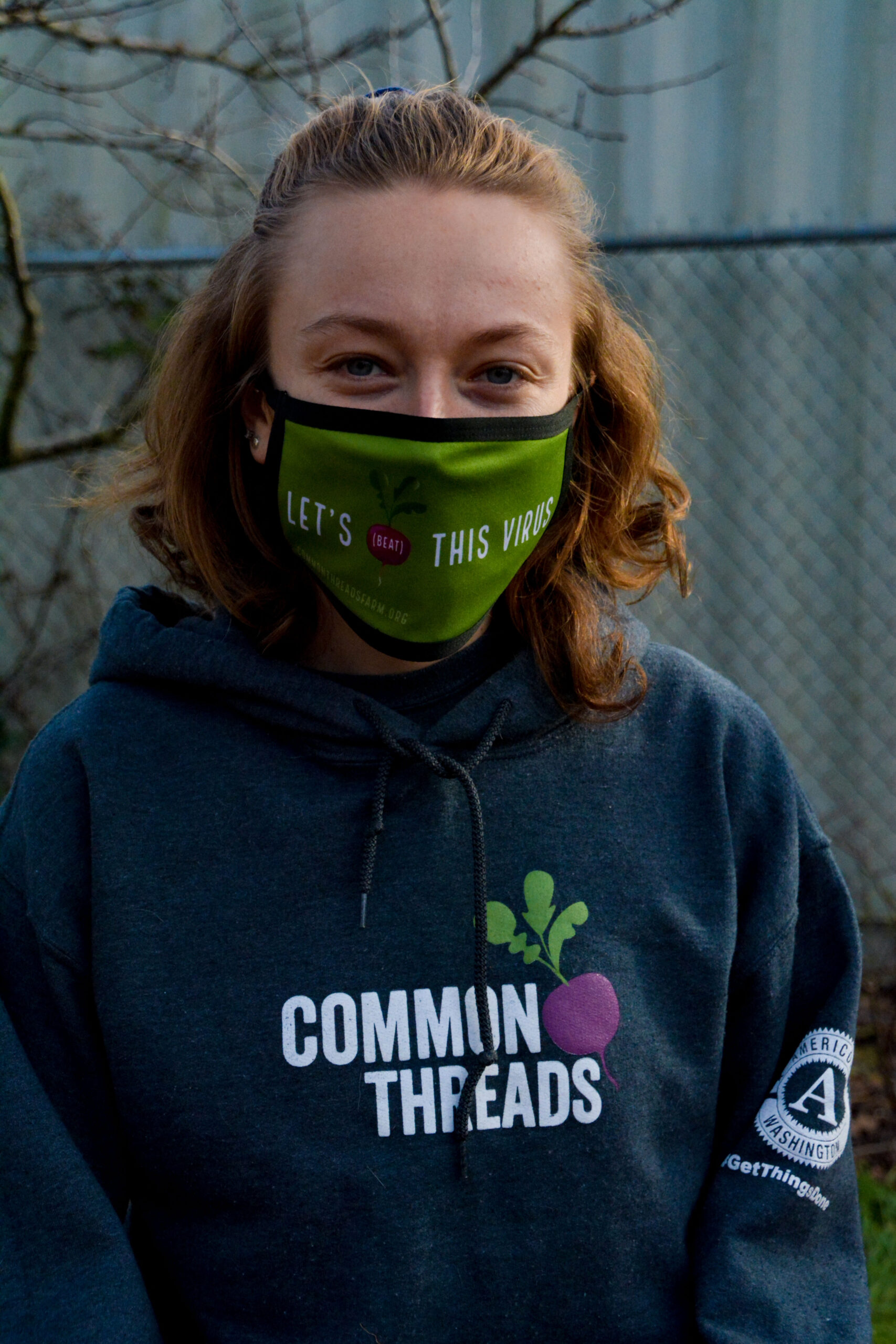
Written by Tessa Bolon, AmeriCorps Food Educator
I applied to Common Threads when I was living in Florida, and was super excited to be outdoors and teaching children (two of my favorite things). However, COVID-19 had different plans, and I quickly realized that both my AmeriCorps service position and I were going to have to go through some pretty serious adaptations in order to be successful. Luckily, we were able to develop a series of Zoom cooking lessons. Even though Zoom isn’t mine (or maybe anyone’s) favorite learning/teaching platform, I figured it was better than not teaching anyone at all.
Going into Zoom cooking lessons I was super nervous about things like internet connection, class size, and if I had my ingredients. However, all of my stressors changed once the Zoom class actually started. Even though I had been worried about what I would consider the “basics”, the basics weren’t what I struggled with as a teacher. Believe it or not, it was the actual cooking that terrified me. In the moment I obviously made it work (and the students successfully prepared food), but afterwards I started to do some self reflection, and realized that not only do I not distinctly remember being taught how to cook when I was younger, but that I actively avoided it.
In addition to this realization, I also noticed that the way I talked about food was actually part of something that could be defined as “toxic diet culture“– basically I defined foods as good or bad without understanding the full nutritional content. Since my professional title is literally “AmeriCorps Food Educator” I decided that I needed to educate myself before educating others, especially impressionable young kids. Because of this I started seeing a nutritionist in order to correctly educate myself on how and why humans should eat what they do. I did not know what to expect going in, but have since come to the realization that time spent with a nutritionist is never wasted.
Some major takeaways from my time so far include:
- Stomachs can be referred to as humans’ “second brain”, and a lack of nutrition heavily impacts our mood
- Up to 95% of serotonin (a mood regulator) is made in the gut
- Any food can be “unhealthy” if eaten in the wrong quantities or if it brings an onset of negative emotions
- Yes, this includes fruits and vegetables!
- If you’re hungry eat something
- It doesn’t matter if you just ate, if you’re hungry eat
- Sometimes fast food is the healthiest option
- An unhealthy relationship with food does not have to be centered around your physical appearance, it can be centered around nutrition, texture, taste, etc.
I never anticipated my time at Common Threads to be so transformative, and am eternally grateful to serve at a place whose mission is seed to table food education. Without this experience, I’m not sure I ever would have learned the true meaning of “toxic diet culture” and how prevalent it is, even in those of us who consider ourselves well-meaning and healthy.
